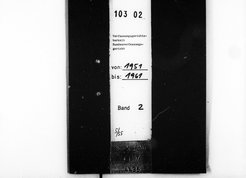The book of judges: reoccupation, religion and the Bundesverfassungsgericht at the origins of constitutional adjudication in Germany (ca 1815-1975).
Forschungsprojekt

I am writing a book about how religion operated as a resource for bringing about the differentiation between law and politics as arranged in the emergence and consolidation of constitutional adjudication as a novel space of communication in Germany. I frame it as a contribution to ‘comparative constitutional history’ and ‘secularisation debates’ in terms of what Fabian Steinhauer dubbed ‘a private theory of public law’. Theoretically, I approach religion and the operationalisation thereof by combining Hans Blumenberg, Cornelia Vismann, and aspects of systems theory in the same vein as previous confrontations (Fabian Steinhauer, Urs Stäheli and Rudolf Schlögl) with the latter’s conceptual framework. In terms of sources, relying on my theoretical framework and a multidisciplinary approach, I engage with traditional sources such as judicial rulings, records on constitutional and legislative debates, newspapers as well as archival findings regarding administrative debates, celebratory discourses, radio speeches, mourning orations, and the construction history of the Bundesverfassungsgericht building in Karlsruhe. My story begins quite early when discussions and fanciful visions about Staatsgerichtsbarkeit started to circulate in Vormärz constitutionalism (ca. 1815) and ends with an explosion (1975) – as the Bundesverfassungsgericht suffered a bomb attack by the feminist group Rote Zora, right after the court ruled on the unconstitutionality of decriminalising abortion.
